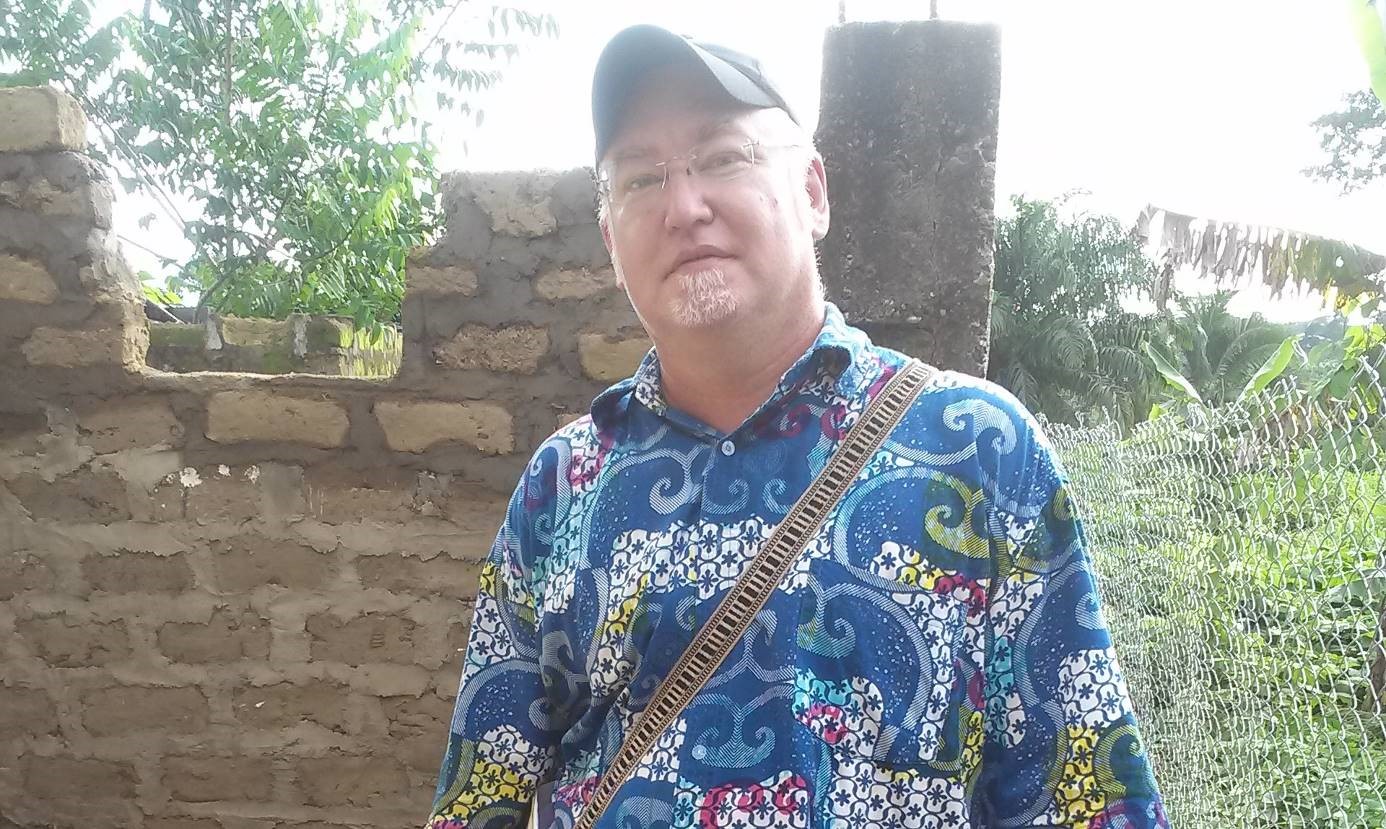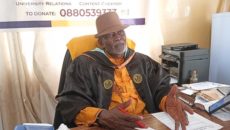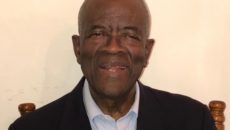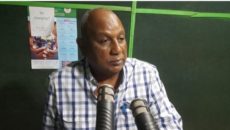Timothy Nevin is a University of Florida trained American historian whose love for Liberia has led him to lecture at two Liberian universities.
After completing his Ph.D. on politics and popular culture in Liberia during the Tolbert and Doe administrations, Nevin has held not one, but two teaching positions in Liberia.
Following more than two years at Tubman University in the southeast, he is currently an assistant professor in the Department of History and International Relations at Cuttington University. Nevin teaches courses on World and Liberian History.
While a range of programs regularly facilitated visiting faculty to Liberian Universities in the years before the war, Nevin is one of a handful of western professors presently teaching in the country.
Via an e-mail exchange, he discussed how he initially became interested in Liberia, his current research interests, and shared his thoughts on the needs and future direction of education in Liberia.
This interview has been edited for clarity.
Â
How did you become interested in Liberia?
I initially became interested in Liberia and Liberian history when I took a job with the US resettlement program working with Liberian refugee families back in 2001. We were based in Accra, Ghana, nearby the Buduburam Refugee Camp.
As case workers, we had a caseload quota of six case histories per day. That meant that every day I would meet with six different Liberian refugee “families†and record their stories for purposes of applying for resettlement in the US. They had to prove to the immigration authorities that they had a well-founded fear of returning to Liberia, and these stories were directly related to the events of the Liberian Civil War.
That was when I began to become personally interested in the historical root causes of the conflicts in Liberia. Typically, I was never taught anything about Liberian history in high school even though Liberia has had a very long and “special relationship†with the US, but by the time I took that job I had already earned my MA degree in African history from the University of Illinois at Chicago.
When did you first visit Liberia? How much cumulative time have you spent in the country?
As I mentioned, I first started working with Liberian refugees in 2001. That job took me to most of the countries in the West African sub-region. I then returned to the US to finish graduate studies. I didn’t actually visit Liberia in person until 2005Â when I came during the summer break for a pre-dissertation research trip.
I recall walking around Monrovia a lot in army boots in the rain. Most people assumed I was a US Marine, which was fine by me. Most of the people I wanted to interview asked for money up front before they would talk to me because folks were still pretty desperate in 2005, just a few years after the second civil war formally ended in 2003.
After that initial 2005 trip, I came back for more dissertation related research during the summer of 2008. I graduated from the University of Florida with my Ph.D. in 2010 and returned to Liberia to teach history at Tubman University in Harper, Maryland County from June 2011 to June 2013. Since April 2015 I have been teaching here at Cuttington University in Bong County, so cumulatively that makes about three and a half years.
How did you pick your Ph.D. topic?
It was a long, torturous process actually.
My Master of Arts adviser suggested that I write a dissertation on the history of radio in Senegal. I quickly realized that this required a level of academic French that I did not possess. The second idea was to do research on radio in The Gambia, but the archival materials were simply not there.
Since I had a longstanding interest in African popular music going back to the late 1980s (especially the music of Fela Kuti, Ali Farka Toure, Mathathini & the Mahotella Queens, Juluka, etc). I decided to investigate the history of popular music in Liberia from before the destruction of the civil war. One of the reasons I chose this topic is that no one had yet written about it academically. Secondly, Liberia has a good newspaper record going back to the period that I wanted to investigate, which was the 1970s and 1980s.
Since this was modern history, most of the people I wanted to interview were still alive, although many important Liberian musicians died or were murdered during the war, including Morris Dorley, Tecumsey Roberts, Robert Toe, etc.
What are your forthcoming/current research projects?
I have several current historical research projects that reflect my interest in a variety of important topics within Liberian history that have not been adequately researched or written about.
First and foremost is my book manuscript tentatively entitled “Songs Unsung: Popular Music, Politics and Pan-Ethnic Appeals in Pre-War Liberia.†This book will be a social history of Liberian popular music that will go into individual careers in a biographical fashion, but will also look at the recording studios and messages contained within the musical productions at the time which I argue reflect changes in popular attitudes of the time period.
I am also currently working on a long research article about the life and times of Madam Suakoko. The town of Suakoko is named after her, and she was one of the few female chiefs in Liberian history. This involves synthesizing the extant written record about her life with new and previously unpublished oral history interviews with local elders about her life and legacy.
I also have other articles that I have written and am hoping to publish soon on the history of Belle Yella Prison (1910-1990) and the Devil Rock (Tule) Grebo Shrine in Maryland County.
What is your favorite Liberian history book?
It is hard to choose just one.
I appreciate “The House at Sugar Beach†by Helene Calista Cooper because it is both a history and a personal memoir written in a popular style for a general readership. I also like the latest book by James Ciment, “Another America†because it is well researched and written in an accessible journalistic style that makes for a fun and engaging read. “Red Dust of the Green Leaves†by John Gay is also a great read; although it is historical fiction set in the 1930s in Kpelle-land, instead of pure history, it focuses on indigenous Liberians in the interior instead of on the former Americo-Liberian ruling class as the first titles I mentioned do.
What do you enjoy most about Cuttington/Liberia?
What I enjoy most about being here are the friendships and relationships that I have formed with both Liberians and expatriates.
I enjoy being close to the sources of my oral history research too. I enjoy taking trips on my motorcycle around Bong County, and I also enjoy my radio program every Tuesday night on Cuttington University radio (93.5fm). I enjoy eating attieke with roasted fish or jollof rice, and having Club beers with my friends. So there are several things I enjoy here.
I will try to stay positive and not mention any of the major drawbacks or daily frustrations!
What is your vision for Liberian higher education in 30 years?
Well, first of all, Liberians need to take seriously and address head on the illiteracy crisis in this country. A favorite question that I like to pose is “If you have a small country with about a 60% illiteracy rate, then what percentage of the national budget should be slated for the educational sector?â€
I think that there is an illiteracy crisis in this country, but no one is really treating it like a crisis. Perhaps because it doesn’t kill people as obviously as the Ebola virus did, but illiteracy and ignorance were major factors leading to the manipulation of the youth by various warlords during the civil war, so I think that it remains a serious problem.
In terms of higher education, the current “youth bulge†will continue to demand more access. The University of Liberia is already overcrowded while new universities like Tubman University are rapidly expanding, so the demand will be there. Whether Liberian high schools will be able to effectively lay the foundations to prepare students for college is another important question. I would like to be optimistic about the future of higher education in Liberia but right now I am not because the high schools are not doing their jobs in terms of training students to read and write competently.
How do Liberians receive a foreigner as a professor of Liberian history?
There are some issues of national pride at stake.
At first, some students are usually skeptical about a white guy from Chicago teaching Liberian history in Liberia, but then they have most likely never met a professionally trained historian before, so I don’t really blame them. Usually, when the students have been in the Liberian history class for a few weeks they realize that I come to class prepared and I am willing to learn together with them since it is impossible to know everything and learning is a life-long process.
Most students get over the initial shock and delve into the subject matter with me, however, there is usually some xenophobia lurking around and a few students don’t seem to realize that the university is supposed to be an international site of learning where faculty from all over the world come and share their knowledge and experience instead of just a site for local patronage jobs.
Photo courtesy of Timothy Nevin



